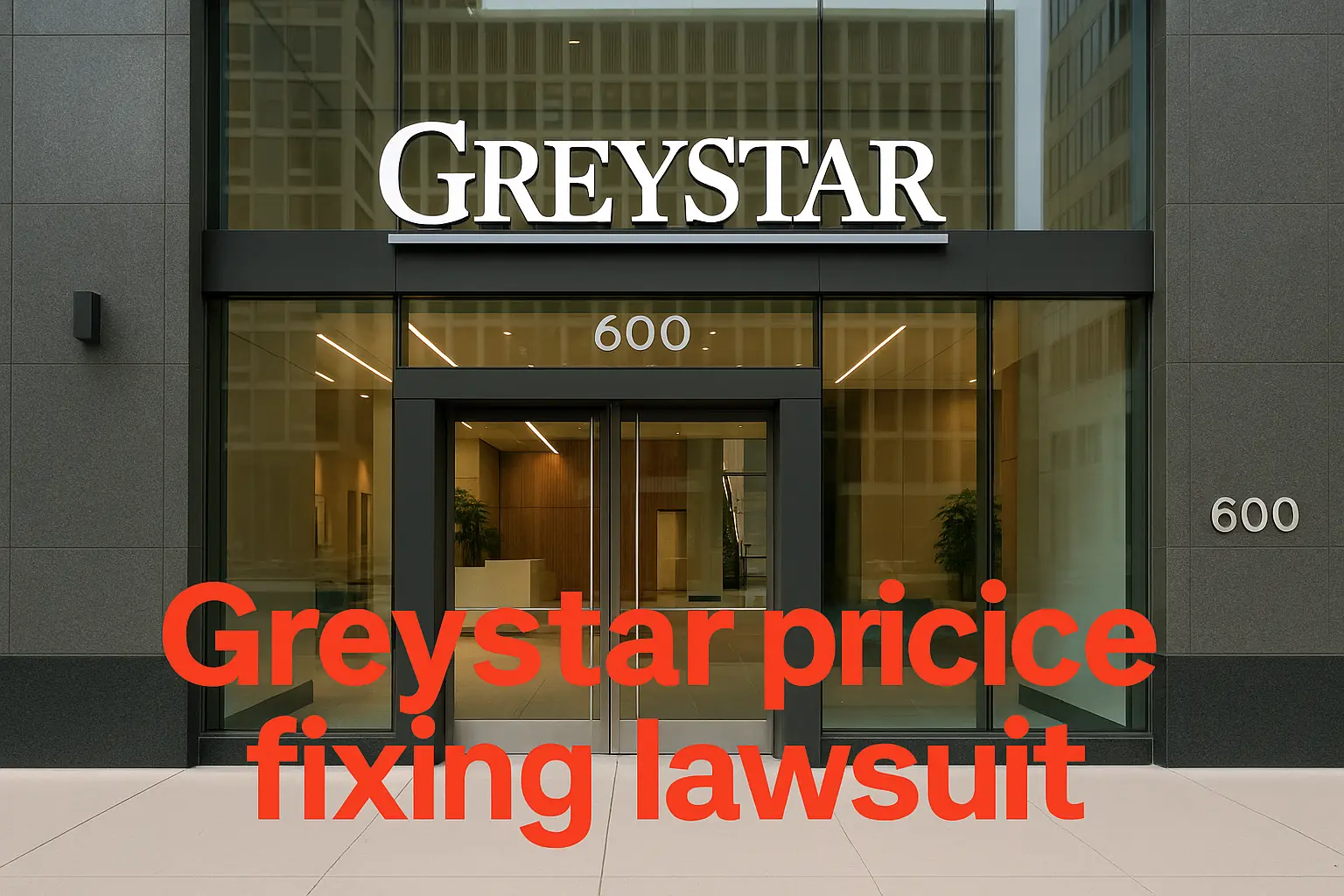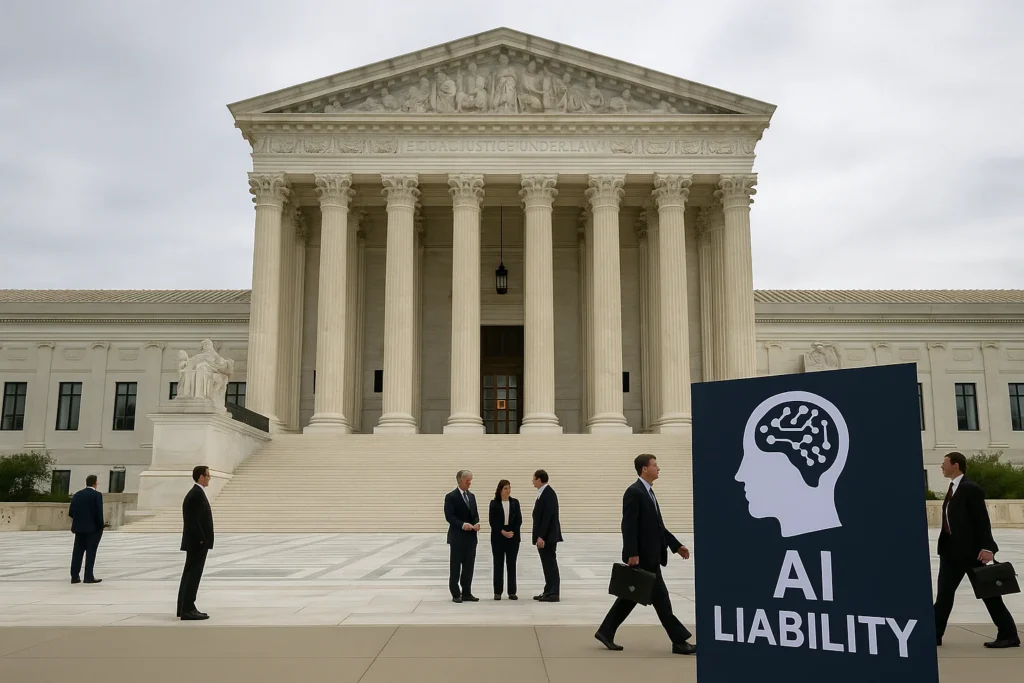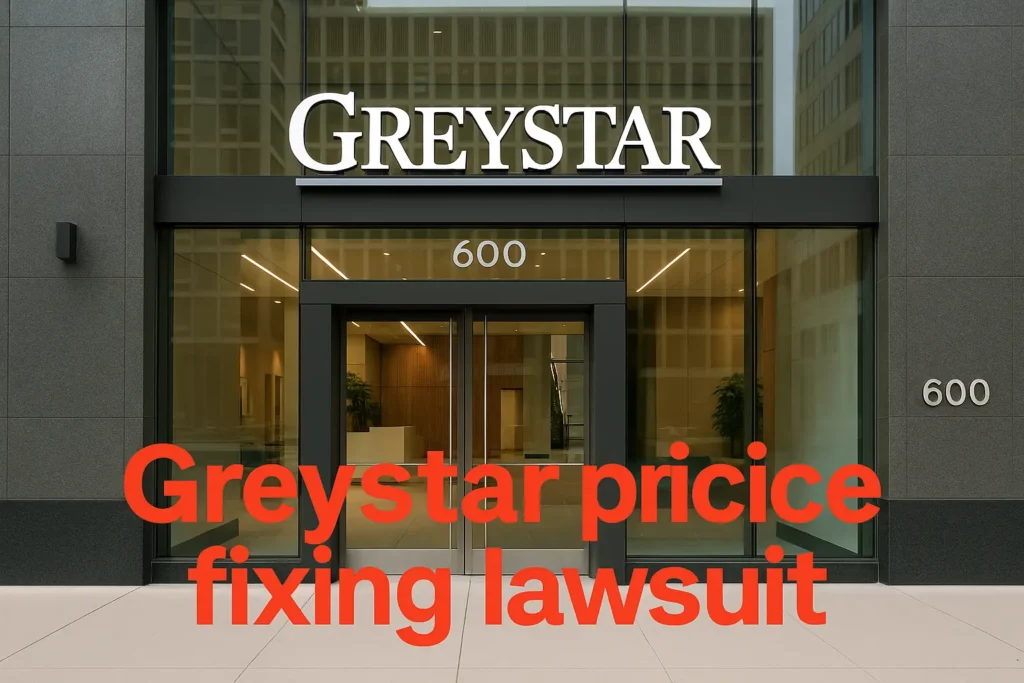The Greystar price-fixing lawsuit has shaken the American housing industry. The nation’s largest landlord, accused of using software to manipulate rents, has agreed to pay $50 million to settle claims that it conspired to inflate prices. What sounds like another corporate fine may, in fact, redefine the boundaries of antitrust law in the digital age.
Context: the rise of algorithmic collusion
Greystar Real Estate Partners, a global property management giant, was among several firms accused of coordinating rent prices through RealPage, a software platform that collects market data and recommends rates to landlords.
The lawsuit alleged that landlords didn’t compete on price — they competed on how tightly they could follow RealPage’s algorithm. Tenants, especially in major cities like Denver, Phoenix, and Dallas, say they paid hundreds more each month because competing landlords effectively acted as one.
The U.S. Department of Justice has been circling the RealPage case for over a year, describing the practice as “algorithmic collusion.” Unlike traditional price-fixing, there’s no smoke-filled room — just shared data and machine learning models doing the dirty work.
Oppositional Argument: technology as the new cartel
Mainstream coverage paints this as a “tech misunderstanding.” It’s not. It’s a deliberate use of algorithms to bypass competition law. The settlement doesn’t just expose one company’s wrongdoing — it reveals a systemic problem at the heart of the tech-driven housing market.
For years, landlords justified rising rents with buzzwords like “data optimization” and “AI efficiency.” But behind the jargon was an industry-wide strategy to synchronize prices and suppress market competition. The victims? Millions of renters who were priced out of their neighborhoods while companies like Greystar enjoyed record profits.
Even more alarming: RealPage’s predictive model relied on confidential rental data shared across competitors — something that, if done manually, would have been a blatant violation of antitrust law. In short, Silicon Valley found a legal backdoor for collusion.
Analytical Breakdown: the legal implications of AI-driven pricing
The $50 million settlement is a fraction of Greystar’s annual revenue, but its impact could be massive. It sets a precedent: algorithms can be instruments of collusion.
Legal experts warn that this case may open floodgates for class-action suits against other property giants. AvalonBay, Equity Residential, and Lincoln Property Company — all users of RealPage software — face ongoing litigation. If courts rule that algorithmic coordination is equivalent to human conspiracy, the entire real estate tech sector will need to rewrite its code of conduct.
What’s at stake is not just rent, but accountability. Who bears responsibility when machines make illegal decisions — the coders, the executives, or the AI itself? So far, corporate lawyers are scrambling for answers.
Insiders within Greystar’s legal team reportedly feared a jury trial would “set an irreversible precedent.” The decision to settle, leaked emails suggest, was more about avoiding discovery than admitting guilt. Transparency, as usual, ends where profit begins.
Human Perspective: renters paying the algorithmic price
For renters, the numbers are personal. In Austin, one tenant reported her rent rising by 20% in a year — across buildings managed by supposedly “competing” firms. “It felt coordinated,” she said. “Now I know it was.”
Another plaintiff, a retired teacher in Seattle, joined the class action after discovering that every nearby apartment used RealPage pricing. “There was no real market — just one machine deciding what we could afford.”
The settlement offers compensation, but not justice. No executive faces charges. The software remains online. The algorithm keeps learning.
Counterarguments
Industry groups argue that RealPage merely provided “market analytics,” not instructions. Yet internal documents showed clients were encouraged to “trust the model” and raise prices even when demand fell. That’s not analysis — that’s orchestration.
Tech lobbyists now warn that aggressive regulation could “stifle innovation.” But what kind of innovation deserves protection — one that engineers inequality?
Conclusion: the new face of antitrust
The Greystar price-fixing lawsuit is more than a courtroom drama. It’s a warning that the digital economy’s invisible hand is no longer guided by competition, but by code.
Regulators once battled oil cartels and telecom monopolies. Now they face algorithmic cartels — invisible, data-driven, and perfectly legal until proven otherwise.
The law will have to evolve as fast as the software that breaks it. Because if algorithms are allowed to set prices unchecked, then capitalism itself becomes automated collusion.
External Links
- Reuters: Greystar agrees to $50 million price-fixing settlement
- Department of Justice investigation on RealPage algorithmic pricing
59 views






